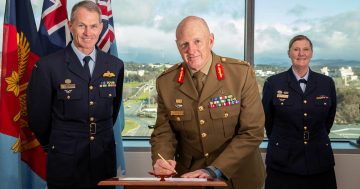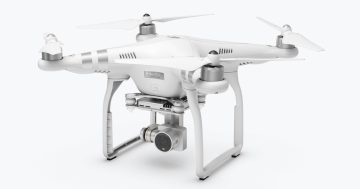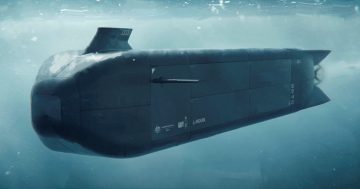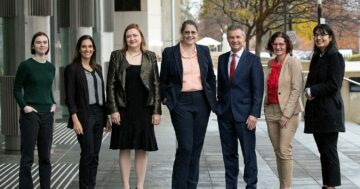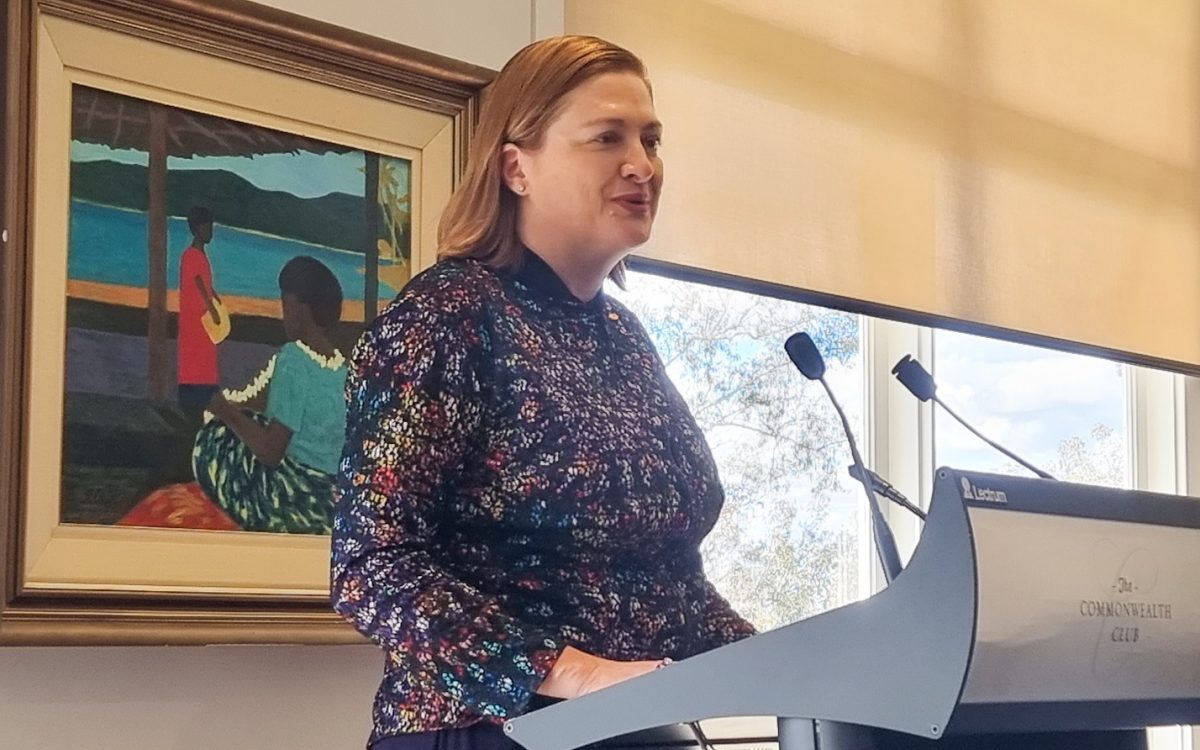
Professor Tanya Monro addresses the AmCham event at the Commonwealth Club. Photo: Andrew McLaughlin.
Attendees at the American Chamber of Commerce (AmCham) event in Canberra on 27 April were treated to an insightful speech by Australia’s Chief Defence Scientist and head of the Defence Science and Technology (DST) Group Professor Tanya Monro.
The event came just three days after the release of the government’s public version of the Defence Strategic Review, which, apart from scaling back some capability projects and accelerating and expanding others, also identified an urgent need to bring new and innovative defence capabilities into service at a much faster pace.
In response to this recommendation, the government announced on Friday (28 April) that it would transform Australia’s‘ defence innovation ecosystem’ so that it may deliver advanced technologies that are urgently required by the Australian Defence Force (ADF).
The $3.4 billion announcement will see the establishment of the Advanced Strategic Capabilities Accelerator (ASCA) program, a key element of the Defence innovation, science and technology program.
The release says priorities for the program will be hypersonics, directed energy, trusted autonomy, quantum technology, information warfare and long-range fires, some of which are part of Pillar Two of the trilateral AUKUS agreement between Australia, the US and the UK.
The ASCA model appears to be an evolution of the proposed Australian Strategic Research Agency (ASRA) which, as leader of the opposition, Prime Minister Anthony Albanese pledged to establish in the lead-up to the 2022 election.
That proposal said ASRA would fund research in breakthrough technologies with national security benefits and boost Australia’s involvement in technology and research and development from the AUKUS construct.

Defence Industry Minister Pat Conroy, Deputy PM and Defence Minister Richard Marles, and Chief Defence Scientist Professor Tanya Monro at the ASCA announcement in Sydney. Photo: ADF.
At her AmCham presentation, Professor Monro said ASCA would “fundamentally change the timelines that it takes to pull something into service” and “fundamentally change the relationship between the innovation system and the capability managers”.
“We’ve done some quite deep and hard work over the past three years … to work with the chiefs of services, and to change the conversation from being, ‘what technology do you think we should be developing?’ to, ‘what problems do you want us to solve?’.
“That is a very powerful change in conversation, because it opens up space for creativity, and it opens up space for unexpected solutions,” she said. “But I don’t underestimate the culture change it takes us as a system to move from saying, ‘just give me more autonomy’ or ‘give me more AI’, to saying something like, ‘I need an autonomous solution that delivers this effect’.”
As if echoing Professor Monro’s comments, the announcement the next day said ASCA would focus on “defined missions, solving the most relevant technical issues, and taking a more flexible and agile approach to procurement”, which will hopefully ensure that “game-changing ideas are developed into capabilities that give the ADF an asymmetric advantage”.
In the statement, Deputy Prime Minister and Defence Minister Richard Marles said: “At the heart of government’s ability to reshape the ADF for the strategic circumstances we face is ensuring we have the capabilities to do so.
“Central to this will be our ongoing work to operationalise Pillar Two of the AUKUS agreement, which seeks to develop and provide capabilities such as undersea warfare and hypersonics for Australia, the United Kingdom and the United States,” he said.
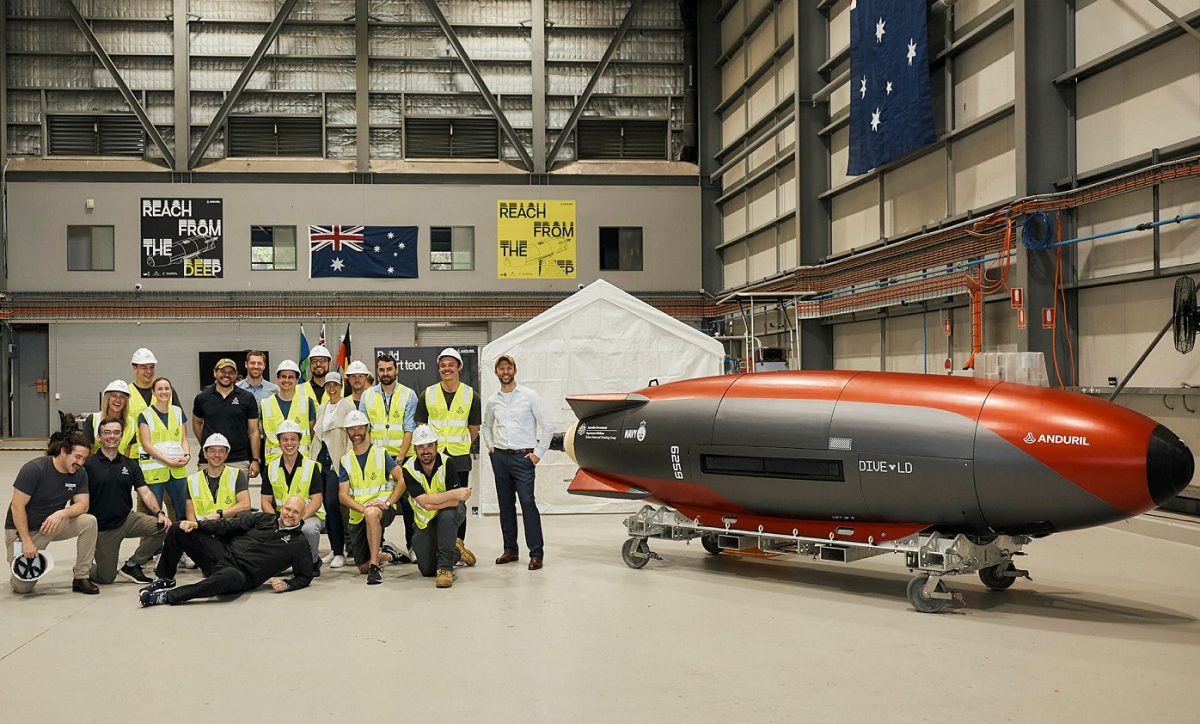
Prof Monro said the Ghost Shark cooperative development program between Anduril Australia and the Navy is an example of how innovative capabilities can be developed and brought into service faster. Photo: ADF.
Professor Monro highlighted a current cooperative development program as an example of how innovative technologies can be brought into service quicker.
“The Ghost Shark is an exemplar for this way of working … it is a co-development partnership with newly formed company, Anduril Australia,” she explained. “They came to the Navy in December 2021 and asked if there was an appetite for the Extra Large Uncrewed or Autonomous Underwater Vehicle (XLAUV).
“That led to a conversation that brought DST in as well,” she added. “We ended up dollar-for-dollar matching and, within less than five months from the first conversation, had a co-development plan up.”
The Ghost Shark program will see three large uncrewed submarines delivered to Navy by the end of 2024. The XLAUVs are the size of a bus and can carry a variety of different payloads and deliver different effects and deterrence.
“This is a tremendously exciting way of working,” she said. “It requires us to no longer be developing packs of papers that may take years to work their way through to committee, it makes senior leaders take a lot more personal engagement and accountability, and it really is a herald to a way we can work differently.”
ASCA will be managed by the Vice Chief of the Defence Force, the Chief Defence Scientist and the Deputy Secretary of the Capability Acquisitions and Sustainability Group. It is planned for it to be formally established by 1 July 2023, and go through an 18-month-long phased start-up to test and refine the operating model.












